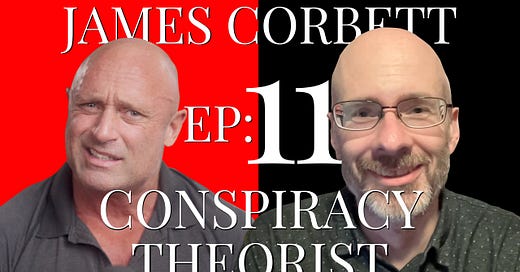
How Christianity Informs Classical Liberalism
In my last two articles, I showed how George Orwell’s 1984 seems to be coming true, how the size of government grows ever larger and how rent-seekers are not only doing what they’ve always done but are getting much better at it. How this happens without sparking a popular uprising, I invoke the fable of ‘the shrinking forest’. I also explained why our fellow citizens are so disengaged from politics and what they can do to start the fightback.
I’d now like to discuss how we’ve reached this position – specifically how our opponents have attacked classical liberalism and libertarianism by first undermining Christianity. You may be sceptical of this. You make not even see a link. But history reveals all and lessons from the past illuminate what our opponents are doing today.
Modern Western democracy was founded in Christianity and in the family. It’s why Karl Marx and Friedrich Engels, the co-authors of The Communist Manifesto, were determined to undermine both. Marx and Engels knew faith and family were the enemy. They did not like what families and people of faith talked about around the dinner table.
In his brilliant book, The Subversive Family, British writer Ferdinand Mount argued that marriage and the family, far from being oppressed by the ruling class, were in fact the chief bulwarks against authoritarianism. Family, faith and freedom are without doubt the best bulwarks against division and authoritarianism.
As for faith, removing Christians from the public square seems to be the unstated aim. ‘Net zero Christians by 2050’, quipped by Rebecca Weisser.
“Every citizen is equal before the law.”
I would argue that the Christian is the model libertarian.
Knowing that one day they will stand before their Creator and give an account of themselves, Christians aim to be the personification of personal responsibility. Endowed with a free will to choose right or wrong, Christians cannot blame anyone else for their actions. It follows therefore, that if God is going to hold people responsible for their actions, then God would give them the right to decide how they conduct their lives.
For example, taking away from someone the right to decide for themselves how much they are willing to work for, is to deny them a God-given right to work. People do things for their reasons, not yours, and people constantly make trade-offs depending on a range of factors known best only to themselves and their families.
It is also why the Bible tells us not once, but twice, “Do not favour the poor in court”. This is real justice, not ‘social justice’.
Favouring one group of citizens over another based on socio-economic or racial grounds is not only immoral, it also foolish. It always ends badly – especially for the favoured group.
Note, this is not to be confused with obligations we have towards each other in a personal capacity. ‘Who is my neighbour?’ Jesus was asked, in the famous ‘good Samaritan’ parable.
In this, the Christian has no difficulty with public policy, that is ‘what is sinful vs what should be unlawful’. Sin is personal, the law for everyone.
And then there’s family. There has been a relentless push to replace father and mother, male and female, with something else. A village perhaps? There was that leftist trope – ‘It takes a village to raise a child.’ As one wag responded, ‘Yes, and it takes a village idiot to believe that.’
More troubling is the breadth of the battleground.
Just look at the global coordination achieved by the Left with respect to Black Lives Matter, Roe v Wade, transgenderism, climate and Covid. Notice the activists all seem to read from the same script. It’s formulaic for sure and almost robotically applied globally regardless of where the original issue occurred.
The Covid response was near uniform globally and we are only now seeing the effects with little to no accountability. There were protests in Adelaide with pictures of George Floyd – a police excessive-use-of-force issue in faraway Minneapolis USA. The US Supreme Court then ruled that abortion should be a state matter and, out of nowhere, the rapid response pro-abortion rallies were rolled-out city by city in Australia, each jurisdiction of which had abortion laws already in place. Go figure.
Whatever you think of these issues, my point is that the global coordination is chilling.
There is no doubt Australia has economic and social problems that it is going to have to solve – inflation, rising interest rates, high mortgages (forcing both parents out to work), high cost of living (educating and raising children, power prices, water prices) – and social ills caused by the rupturing of family relationships due to mental health and addictions of various kinds.
Our nation also has economic and social goals it wants to achieve – increased productivity, affordable housing, lower crime rates. However, looking to politicians, bureaucrats and regulators to solve these problems and achieve these goals seems to be a lost cause.
As for free markets, property rights, personal responsibility, self-reliance, free speech, lower taxes, the rule of law, and smaller government, these have all but been abandoned.
Major party MPs seem more interested in making friends across the aisle than looking for ways ‘to improve the life of the ordinary citizen’ as described by Charles Taylor in his book, The Affirmation of the Ordinary Life.
Once elected, MPs are easily captured. They like being Members of Parliament and they like being liked – including by members of other parties. They also love socialising; they don’t want to be ostracised or booed on the ABC for making a stand or championing a cause. On issue after issue, they seem weak. They have lost both their philosophical bearings and religious convictions.
Take away religious conviction and classical liberalism becomes less grounded.
One flows from the other.
I would argue it is not possible to ‘break through’ all this. We have to ‘break with’. We have to force the major parties’ hands through the brutal reality of balance-of-power politics.
Next week I would like to flag a ground-breaking idea for change. Something practical. An innovation which I trust will bring hope and optimism.
So please keep reading Liberty Itch ….!
The post How Christianity Informs Classical Liberalism appeared first on Liberty Itch.













